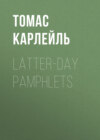Buch lesen: «History of Friedrich II of Prussia — Volume 18», Seite 11
Chapter VII.—FRIEDRICH IN THURINGEN, HIS WORLD OF ENEMIES ALL COME
The Soubise-Hildburghausen people had got rendezvoused at Erfurt about August 25th; 50,000 by account, and no enemy within 200 miles of them; and in the Versailles circles it had been expected they would proceed to the "Deliverance of Saxony" straightway. What is to hinder?—Friedrich, haggling with the Austrians at Bernstadt, could muster but a poor 23,000, when he did march towards Erfurt. In those same neighborhoods, within reach of Soubise, is the Richelieu, late D'Estrees, Army; elated with Hastenbeck, comfortably pushing Royal Highness of Cumberland, who makes no resistance, step by step, into the sea; victoriously plundering, far and wide in those countries, Hanover itself the Head-quarter. In the Versailles circles, it is farther expected that Richelieu, "Conqueror of Minorca," will shortly besiege and conquer Magdeburg, and so crown his glories. Why not; were the "Deliverance of Saxony" complete?
The whole of which turned out greatly otherwise, and to the sad disappointment of Versailles. The Conqueror of Minorca is probably aware that the conquering of Magdeburg, against one whose platforms are not rotten, and who does not "lie always in his bed," as poor old Blakeney did, will be a very different matter. And the private truth is, Marrchal de Richelieu never turned his thoughts upon Magdeburg at all, nor upon any point of war that had difficulties, but solely upon collecting plunder for himself in those Countries. One of the most magnificent marauders on record; in no danger, he, of becoming monitory and a pendulum, like the 1,000 that already swing in that capacity to rear of him! And he did manage, in this Campaign, which was the last of his military services, so as to pay off at Paris "above 50,000 pounds of debts; and to build for himself a beautiful Garden Mansion there, which the mocking populations called 'Hanover Pavilion (PAVILION D'HANOVRE);'" a name still sticking to it, I believe. [Barbier, iii. 256, 271.] Of the Richelieu Campaign we are happily delivered from saying almost anything: and the main interest for us turns now on that Soubise-Hildburghausen wing of it,—which also is a sufficiently contemptible affair; not to be spoken of beyond the strictly unavoidable.
Friedrich, with his 23,000 setting out from Dresden, August 30th, has a march of about 170 miles towards Erfurt. He may expect to find—counting Richelieu, if Royal Highness of Cumberland persist in acting ZERO as hitherto—a confused mass of about 150,000 Enemies, of one sort and other, waiting him ahead; not to think of those he has just left behind;—and he cannot well be in a triumphant humor! Behind, before, around, it is one gathering of Enemies: one point only certain, that he must beat them, or else die. Readers would fain follow him in this forlorn march; him, the one point of interest now in it: and readers shall, if we can manage, though it is extremely difficult. For, on getting to Erfurt, he finds his Soubise-Hildburghausen Army off on retreat among the inaccessible Hills still farther westward; and has to linger painfully there, and to detach, and even to march personally against other Enemies; and then, these finished, to march back towards his Erfurt ones, who are taking heart in the interim:—and, in short, from September 1st to November 5th, there are two months of confused manoeuvring and marching to and fro in that West-Saxon region, which are very intricate to readers. November 5th is a day unforgettable: but anterior to that, what can we do? Here, dated, are the Three grand Epochs of the thing; which readers had better fix in mind as a preliminary:—
1. SEPTEMBER 13th, Friedrich has got to Erfurt neighborhood; but Soubise and Company are off westward to the Hills of Eisenach, won't come down; Friedrich obliged to linger thereabouts, painfully waiting almost a month, till
2. OCTOBER 11th, hearing that "15,000 Austrians" (that Stolpen Party, left as rear-guard at Stolpen; Croats mainly, under a General Haddick) are on march for Berlin, he rises in haste thitherward, through Leipzig, Torgau, say 100 miles; hears that Haddick HAS been in Berlin (16th-17th October) for one day, and that he is off again full speed with a ransom of 30,000 pounds, which they have had to pay him: upon which Friedrich calls halt in the Torgau country;—and would have been uncertain what to do, had not
3. Soubise and Company, extremely elated with this Haddick Feat, come out from their Hills, intent to deliver Saxony after all. So that Friedrich has to turn back (October 26th-30th) through Leipzig again; towards,—in fact towards ROSSBACH and NOVEMBER 5th, in his old Saale Country, which does not prove so wearisome as formerly!
These are the cardinal dates; these let the reader recur to, if necessary, and keep steadily in mind: it will then perhaps be possible to intercalate, in a manner intelligible to him, what other lucent phenomena there are; and these dismal wanderings, and miserablest two months of Friedrich's life, will not be wholly a provoking blotch of enigmatic darkness, but in some sort a thing with features in the twilight of the Past.
I. FRIEDRICH'S MARCH TO ERFURT FROM DRESDEN—(31st August-13th September, 1757)
The march to Erfurt was of twelve days, and without adventure to speak of. Mayer and Free-Battalion had the vanguard, Friedrich there as usual; main body, under Keith with Ferdinand and Moritz, following in several columns: straight towards their goal; with steady despatch; for twelve days;—weather often very wet. [Tempelhof, i. 229; Rodenbeck, i. 317 (not very correct): in Westphalen (ii. 20 &c.) a personal Diary of this March, and of what followed on Duke Ferdinand's part.] Seidlitz, with cavalry, had gone ahead, in search of one Turpin, a mighty hunter and Hussar among the French, who was threatening Leipzig, threatening Halle: but Turpin made off at sound of him, without trying fight; so that Seidlitz had only to halt, and rejoin, hoping better luck another time.
A march altogether of the common type,—the stages of it not worth marking except for special readers;—and of memorable to us offers only this, if even this: at Rotha, in Leipzig Country, the eighth stage from Dresden, Friedrich writes, willing to try for Peace if it be possible,
TO THE MARECHAL DUC DE RICHELIEU.
"ROTHA, 7th September, 1757.
"I feel, M. le Duc, that you have not been put in the post where you are for the purpose of Negotiating. I am persuaded, however, that the Nephew of the great Cardinal Richelieu is made for signing treaties no less than for gaining battles. I address myself to you from an effect of the esteem with which you inspire even those who do not intimately know you.
"'T is a small matter, Monsieur (IL S'AGIT D'UNE BAGATELLE): only to make Peace, if people are pleased to wish it! I know not what your Instructions are: but, in the supposition that the King your Master, zow assured by your Successes, will have put it in your power to labor in the pacification of Germany, I address to you the Sieur d'Elcheset" (Sieur Balbi is the real name of him, an Italian Engineer of mine, who once served with you in the Fontenoy times,—and some say he has privately a 15,000 pounds for your Grace's acceptance,—"the Sieur d'Elcheset), in whom you may place complete confidence.
"Though the events of this Year afford no hope that your Court still entertains a favorable disposition for my interests, I cannot persuade myself that a union which has lasted between us for sixteen years may not have left some trace in the mind. Perhaps I judge others by myself. But, however that may be, I, in short, prefer putting my interests into the King your Master's hands rather than into any other's. If you have not, Monsieur, any Instructions as to the Proposal hereby made, I beg of you to ask such, and to inform me what the tenor of them is.
"He who has merited statues at Genoa [ten years ago, in those ANTI-Austrian times, when Genoa burst up in revolt, and the French and Richelieu beautifully intervened against the oppressors]; he who conquered Minorca in spite of immense obstacles; he who is on the point of subjugating Lower Saxony,—can do nothing more glorious than to restore Peace to Europe. Of all your laurels, that will be the fairest. Work in this Cause, with the activity which has secured you such rapid progress otherwise; and be persuaded that nobody will feel more grateful to you than, Monsieur le Duc,—Your faithful Friend,— FREDERIC." [Given in RODENBECK, i. 313 (doubtless from Memoires de Richelieu, Paris, 1793, ix. 175, the one fountain-head in regard to this small affair): for "the 15,000 pounds" and other rumored particulars, sea Retzow, i. 197; Preuss, ii. 84; OEuvres de Frederic, iv. 145.]
Richelieu, it appears by any evidence there is, went willingly into this scheme; and applied at Versailles, as desired; with a peremptory negative for result. Nothing came of the Richelieu attempt there; nor of "CE M. DE MIRABEAU," if he ever went; nor of any other on that errand. Needless to apply for Peace at Versailles (and a mere waste of your "sum of 15,000 pounds," which one hopes is fabulous in the present scarcity of money):—or should we perhaps have mentioned the thing at all, except for the sake of Wilhelmina, whose fond scheme it is in this extremity of fate; scheme which she tries in still other directions, as we shall see; her Brother willing too, but probably with much less hope. If a civil Letter and a bribe of Money will do it, these need not be spared.
This at Rotha is the day while Winterfeld, on Moys Hill, is meeting his death. To-day at Pegau, in this neighborhood, Seidlitz, who could not fall in with Turpin, has given the Hussars of Loudon a beautiful slap; the first enemy we have seen on this march; and the last,—nothing but Loudon and Hussars visibly about, the rest of those Soubise-Reichs people dormant, as would seem. "D'Elcheset," Balbi, or whoever he was, would not find Richelieu at Hanover; but at a place called Kloster-Zeven, in Bremen Country, fifty or sixty miles farther on. There, this day, are Richelieu with one Sporcken a Hanoverian, and one Lynar a Dane, rapidly finishing a thing they were pleased to call "Convention of Kloster-Zeven;" which Friedrich regarded as another huge misfortune fallen on him,—though it proved to have been far the reverse a while after. Concerning which take this brief Note; cannot be too brief on such a topic:—
"Never was there a more futile Convention than that of Kloster-Zeven; which filled all Europe with lamentable noises, indignations and anxieties, during the remainder of that Year; and is now reduced, for Europe and the Universe, to a silent mathematical point, or mere mark of position, requiring still to be attended to in that character, though itself zero in any other. Here are the main particulars, in their sequence.
"August 3d, towards midnight, '11 P.M.' say the Books, Marechal de Richelieu arrives in the D'Estrees Camp ('Camp of Oldendorf,' still only one march west of Hastenbeck); to whom D'Estrees on the instant loftily delivers up his Army; explains with loyalty, for a few days more, all things needful to the new Commander; declines to be himself Second; and loftily withdraws to the Baths of Aachen 'for his health.'
"Royal Highness of Cumberland is, by this time, well on Elbe-ward, Ocean-ward. Till August 1st; for one week, Royal Highness of Cumberland lay at Minden, some thirty odd miles from Hastenbeck; deploring that sad mistake; but unpersuadable to stand, and try amendment of it: August 1st, the French advancing on him again, he moved off northward, seaward. By Nienburg, Verden, Rothenburg, Zeven, Bremenvorde, Stade;—arrived at Stade, on the tidal Waters of the Elbe, August 5th; and by necessity did halt there. From Minden onwards, Richelieu, not D'Estrees, has had the chasing of Royal Highness: one of the simplest functions; only that the country is getting muddy, difficult for artillery-carriage (thinks Richelieu), with an Army so dilapidated, hungry, short of pay; and that Royal Highness, a very furious person to our former knowledge, might turn on us like a boar at bay, endangering everything; and finally, that one's desire is not for battle, but for a fair chance of plunder to pay one's debts.
"Britannic Majesty, in this awful state of his Hanover Armaments, has been applying at the Danish Court; Richelieu too sends off an application thither: 'Mediate between us, spare useless bloodshed!' [Valfons, p. 291.]—Whereupon Danish Majesty (Britannic's son-in-law) cheerfully undertakes it; bids one Lynar bestir himself upon it. Count Lynar, an esteemed Official of his, who lives in those neighborhoods; Danish Viceroy in Oldenburg,—much concerned with the Scriptures, the Sacred Languages and other seraphic studies,—and a changed man since we saw him last in the Petersburg regions, making love to Mrs. Anton Ulrich long ago! Lynar, feeling the axis of the world laid on his shoulder in this manner, loses not a moment; invokes the Heavenly Powers; goes on it with an alacrity and a despatch beyond praise. Runs to the Duke of Cumberland at Stade; thence to Richelieu at Zeven; back to the Duke, back to Zeven: 'Won't you; and won't YOU?' and in four short days has the once world-famed 'Convention of Kloster-Zeven' standing on parchment,—signed, ready for ratifying: 'Royal Highness's Army to go home to their countries again [routes, methods, times: when, how, and what next, all left unsettled], and noise of War to cease in those parts.' Signed cheerfully on both sides 9th September, 1757; and Lynar striking the stars with his sublime head. [Busching (who alone is exact in the matter), Beitrage, iv. 167, 168,? Lynar: see Scholl, iii. 49; Valfons, pp. 202, 203; OEuvres de Frederic, iv. 143 (with correction of Preuss's Note there).]
"Unaccountable how Lynar had managed such a difficulty. He says seraphically, in a Letter to a friend, which the Prussian hussars got hold of, 'The idea of it was inspired by the Holy Ghost:' at which the whole world haha'd again. For it was a Convention vague, absurd, not capable of being executed; ratification of it refused by both Courts, by the French Court first, if that was any matter:—and the only thing now memorable of it is, that IT was a total Futility; but, that there ensued from it a Fact still of importance; namely:—
"That on the 5th of October following, Royal Highness quitted Stade, and his wrecked Army hanging sorrowful there, like a flight of plucked cranes in mid-air;—arrived at Kensington, October 12th; heard the paternal Majesty say, that evening, 'Here is my son who has ruined me, and disgraced himself!'—and thereupon indignantly laid down his military offices, all and sundry; and ceased altogether to command Armies, English or other, in this world. [In WALPOLE (iii. 59-64) the amplest minuteness of detail.] Whereby, in the then and now diagram of things, Kloster-Zeven, as a mathematical point, continues memorable in History, though shrunk otherwise to zero!
"Pitt's magnanimity to Royal Highness was conspicuous. Royal Highness, it is said, had been very badly used in this matter by his poor peddling Father and the Hanover Ministers; the matter being one puddle of imbecilities from beginning to end. He was the soul of honor; brave as a Welf lion; but, of dim poor head; and had not the faintest vestige [ALLERGERINGSTE says Mauvillon] of military skill: awful in the extreme to see in command of British Armies! Adieu to him, forever and a day."
Ever since July 29th, three days after Hastenbeck, Pitt had been in Office again; such the bombardment by Corporation-Boxes and Events impinging on Britannic Majesty: but not till now, as I fancy, had Pitt's way, in regard to those German matters, been clear to him. The question of a German Army, if you must, have a No-General at the top of it, might well be problematical to Pitt. To equip your strong fighting man, and send him on your errand, regardless of expense; and, by way of preliminary, cut the head off him, before saying "Good-speed to you, strong man!" But with a General, Pitt sees that it can be different; that perhaps "America can be conquered in Germany," and that, with a Britannic Majesty so disposed, there is no other way of trying it. To this course Pitt stands henceforth, heedless of the gazetteer cackle, "Hah, our Pitt too become German, after all his talking!"—like a seventy-four under full sail, with sea, wind, pilot all of one mind, and only certain water-fowl objecting. And is King of England for the next Four Years; the one King poor England has had this long while;—his hand felt shortly at the ends of the Earth. And proves such a blessing to Friedrich, among others, as nothing else in this War; pretty much his one blessing, little as he expected it. Before long, Excellency Mitchell begins consulting about a General,—and Friedrich dimly sees better things in the distance, and that Kloster-Zeven had not been the misfortune he imagined, but only "The darkest hour," which, it is said, lies "nearest to the dawn."
II. THE SOUBISE HILDBURGHAUSEN PEOPLE TAKE INTO THE HILLS; FRIEDRICH IN ERFURT NEIGHBORHOOD, HANGING ON, WEEK AFTER WEEK, IN AN AGONY OF INACTION (13th September-10th October)
Friedrich's march has gone by Dobeln, Grimma, to Pegau and Rotha, Leipzig way, but, with Leipzig well to right: it just brushes Weissenfels to rightward, next day after Rotha; crosses Saale River near Naumburg, whence straight through Weimar Country, Weimar City on your left, to Erfurt on the northern side;—and,
"ERFURT, TUESDAY 13th SEPTEMBER, 1757, About 10 in the morning [listen to a faithful Witness], there appeared Hussars on the heights to northward:—'Vanguard of his Prussian Majesty!' said Erfurt with alarm, and our French guests with alarm. And scarcely were the words uttered, when said Vanguard, and gradually the whole Prussian Army [only some 9,000, though we all thought it the whole], came to sight; posting itself in half-moon shape round us there; French and Reichs folk hurrying off what they could from the Cyriaksberg and Petersberg, by the opposite gates,"—towards Gotha, and the Hills of Eisenach.
"Think what a dilemma for Erfurt, jammed between two horns in this way, should one horn enter before the other got out! Much parleying and supplicating on the part of Erfurt: Till at last, about 4 P.M., French being all off, Erfurt flung its gates open; and the new Power did enter, with some due state: Prussian Majesty in Person (who could have hoped it!) and Prince Henri beside him; Cavalry with drawn swords; Infantry with field-pieces, and the band playing"—Prussian grenadier march, I should hope, or something equally cheering. "The rest of the Vanguard, and, in succession, the Army altogether, had taken Camp outside, looking down on the Northern Gate, over at Ilgertshofen, a village in the neighborhood, about two miles off." [Helden-Geschichte, iv. 636, 637.]
That is the first sight Friedrich has of "LA DAUPHINE," as the Versailles people call this Bellona, come to "deliver Saxony;" and she is considerably coyer than had been expected. Many sad days, and ardent vain vows of Friedrich, before he could see the skirt of her again! From Ilgertshofen, northwestward to Dittelstadt, Gamstadt, and other poor specks of villages in Gotha Territory, is ten or fifteen miles; from Dittelstadt eastward to Buttstadt and Buttelstadt, in Weimar Country, may be twenty-five: in this area, Friedrich, shifting about, chiefly for convenience of quarters,—head-quarter Kirschleben for a while, Buttelstadt finally and longest,—had to wander impatiently to and fro for four weeks and more; no work procurable, or none worth mentioning:—in the humor of a man whose House is on fire, flaming out of every window, front and rear; who has run up with quenching apparatus; and cannot, being spell-bound, get the least bucket of it applied. And is by nature the rapidest soul now alive. Figure his situation there, as it gradually becomes manifest to him!
For the present, DAUPHINESS Bellona, hurrying to the Hills, has left some tagrag of remnant in Gotha. Whereupon, the second day, here is an "Own Correspondent" again,—not coming by electric telegraph, but (what is a sensible advantage) credible in every point, when he does come:—
"GOTHA, THURSDAY, 15th SEPTEMBER. Grand-Duke and Duchess, like everybody else, have been much occupied all morning with the fact, that the Prussian Army [Seidlitz and a regiment or two, nothing more] is actually here; took possession of the Town-Gates and Main Guard this morning,—certain Hungarian-French hussar rabble, hateful to every one in Gotha, having made off in time, rapidly towards Eisenach and the Hills.
"Towards noon, his Royal Majesty in highest person, with his Lord Brother the Prince Henri's Royal Highness, arrived in Gotha; sent straightway, by one of his Officers, a compliment to the Grand-Duke; and 'would have the pleasure to come and dine, if his Serene Highness permitted.' Serene Highness, self and Household always cordially Friedrich's, was just about sitting down to dinner; and answered with exuberantly glad surprise,—or was answering, when Royal Majesty himself stept in with smiling face; and embracing the Duke, said: 'I timed myself to arrive at this moment, thinking your Durchlaucht would be at dinner, that I might be received without ceremony, and dine like a neighbor among you.' Unexpected as this visit was, the joy of Duke and Duchess," always fast friends to Friedrich, and the latter ever afterwards his correspondent, "may be conceived, but not adequately expressed; as both the Serenities were touched, in the most affecting manner, by the honor of so great a King's sudden presence among them.
"His Majesty requested that the Frau von Buchwald, our Most Gracious Duchess's Hof-Dame, whose qualities he much valued, might dine with them,"—being always fond of sensible people, especially sensible women. "The whole Highest and High company [Royal, that is, and Ducal] was, during table, uncommonly merry. The King showed himself altogether content; and his bright clever talk and sprightly sallies, awakening everybody to the like, left not the least trace visible of the weighty toils he was then engaged in;—as if the weightier these were, the less should they fetter the noble openness (FREYMUTHIGKEIT) of this high soul, which is not to be cast down by the heaviest burden.
"His Majesty having taken leave of Duke and Duchess, and graciously permitted the chiefest persons of the Gotha Court to pay their respects, withdrew to his Army." [Letter in Helden-Geschichte, iv. 638, 639.] Slept, I find elsewhere, "at Gamstadt, on the floor of a little Inn;" meaning to examine Posts in that part, next morning.
Here has been a cheerful little scene for Friedrich; the last he has in these black weeks. A laborious Predecessor, striving to elucidate, leaves me this Note:—
"What a pity one knows nothing, nor can know, about this Duke and Duchess, though their names, especially the latter's name, are much tossed to and fro in the Books! We heard of them, favorably, in Voltaire's time; and may again, at least of the Lady, who is henceforth a Correspondent of Friedrich's. The above is a dim direct view of them, probably our last as well as first. Duke's name is Friedrich III.; I do believe, a man of solidity, honor and polite dignified sense, a highly respectable Duke of Sachsen-Gotha, contented to be obscure, and quietly do what was still do-able in that enigmatic situation. He is Uncle to our George III.;—his Sister is the now Princess-Dowager of Wales, with a Lord Bute, and I know not what questionable figures and intrigues, or suspicions of intrigue, much about her. His Duchess, Louisa Dorothee, is a Princess of distinguished qualities, literary tastes,—Voltaire's Hostess, Friedrich's Correspondent: a bright and quietly shining illumination to the circle she inhabits. Duke is now fifty-eight, Duchess forty-seven; and they lost their eldest Son last year. There has been lately a considerable private brabble as to Tutorage of the Duke of Weimar (Wilhelmina's maddish Duke, who is dead lately; and a Prince left, who soon died also, but left a Son, who grew to be Goethe's friend); Tutorage claimed by various Cousins, has been adjudged to this one, King Friedrich co-operating in such result.
"As to the famed Grand-Duchess, she is a Sachsen-Meiningen Princess, come of Ernst the Pious, of Johann the Magnanimous, as her Husband and all these Sachsens are: when Voltaire went precipitant, with such velocity, from the Potsdam Heaven, she received him at Gotha; set him on writing his HISTORY OF THE EMPIRE, and endeavored to break his fall. She was noble to Voltaire, and well honored by that uncertain Spirit. There is a fine Library at Gotha; and the Lady bright loves Books, and those that can write them;—a friend of the Light, a Daughter of the Sun and the Empyrean, not of Darkness and the Stygian Fens." [Michaelis, i. 517; &c. &c.]
Friedrich's first Letter to her Highness was one of thanks, above a year ago, for an act of kindness, act of justice withal, which she did to one of his Official people. Here, on the morrow of that dinner, is the second Letter, much more aerial and cordial, in which style they all continue, now that he has seen the admired Princess.
TO THE MOST SERENE GRAND-DUCHESS OF SACHSEN-GOTHA.
DITTELSTADT, "16th September, 1757.
"MADAM,—Yesterday was a Day I shall never forget; which satisfied a just desire I have had, this long while, to see and hear a Princess whom all Europe admires. I am not surprised, Madam, that you subdue people's hearts; you are made to attract the esteem and the homage of all who have the happiness to know you. But it is incomprehensible to me how you can have enemies; and how men representing Countries that by no means wish to pass for barbarous, can have been so basely (INDIGNEMENT) wanting in the respect they owe you, and in the consideration which is due to all sovereigns [French not famous for their refined demeanor in Saxony this time]. Why could not I fly to prevent such disorders, such indecency! I can only offer you a great deal of good-will; but I feel well that, in present circumstances, the thing wanted is effective results and reality. May I, Madam, be so happy as to render you some service! May your fortune be equal to your virtues! I am with the highest consideration, Madam, your Highness's faithful Cousin,—F." [OEuvres de Frederic, xvii. 166.]
To Wilhelmina he says of it, next day, still gratified, though sad news have come in the interim;—death of Winterfeld, for one black item:—
"The day before yesterday I was in Gotha. It was a touching scene to see the partners of one's misfortunes, with like griefs and like complaints. The Duchess is a woman of real merit, whose firmness puts many a man to shame. Madam de Buchwald appears to me a very estimable person, and one who would suit you much: intelligent, accomplished, without pretensions, and good-humored. My Brother Henri is gone to see them to-day. I am so oppressed with grief, that I would rather keep my sadness to myself. I have reason to congratulate myself much on account of my Brother Henri; he has behaved like an angel, as a soldier, and well towards me as a Brother. I cannot, unfortunately, say the same of the elder. He sulks at me (IL ME BODE), and has sulkily retired to Torgau, from whence, I hear, he is gone to Wittenberg. I shall leave him to his caprices and to his bad conduct; and I prophesy nothing good for the future, unless the younger guide him." ["Kirschleben, near Erfurt, 17th September, 1757" (OEuvres de Frederic, xxvii. i. 306).]...
This is part of a long sad Letter to Wilhelmina; parts of which we may recur to, as otherwise illustrative. But before going into that tragic budget of bad news, let us give the finale of Gotha, which occurred the next day,—tragi-comic in part,—and is the last bit of action in those dreary four weeks.
GOTHA, 18th SEPTEMBER. "Since Thursday 15th, Major-General Seidlitz," youngest Major-General of the Army, but a rapidly rising man, "has been Commandant in Gotha, under flourishing circumstances; popular and supreme, though only with a force of 1,500, dragoons and hussars. Monday morning early, Seidlitz's scouts bring word that the Soubise-Hildburghausen people are in motion hitherward; French hussars and Austrian, Turpin's, Loudon's, all that are; grenadiers in mass;—total, say, 8,000 horse and foot, with abundance of artillery;—have been on march all night, to retake Gotha; with all the Chief Generals and Dignitaries of the Army following in their carriages, for some hours past, to see it done. Seidlitz, ascertaining these things, has but one course left,—that of clearing himself out, which he does with orderly velocity: and at 9 A.M. the Dignitaries and their 8,000 find open gates, Seidlitz clean off; occupy the posts, with due emphasis and flourish; and proceed to the Schloss in a grand triumphant way,—where privately they are not very welcome, though one puts the best face on it, and a dinner of importance is the first thing imperative to be set in progress. A flurried Court, that of Gotha, and much swashing of French plumes through it, all this morning, since Seidlitz had to flit.
"Seidlitz has not flitted very far. Seidlitz has ranked his small dragoon-hussar force in a hollow, two miles off; has got warning sent to a third regiment within reach of him, 'Come towards me, and in a certain defile, visible from Gotha eastward, spread yourselves so and so!'—and judges by the swashing he hears of up yonder, that perhaps something may still be done. Dinner, up in the Schloss, is just being taken from the spit, and the swashing at its height, when—'Hah what is that, though?' and all plumes pause. For it is Seidlitz, artistically spread into single files, on the prominent points of vision; advancing again, more like 15,000 than 1,500: 'And in the Defile yonder, that regiment, do you mark it; the King's vanguard, I should say?—To horse!'











![[Einleitung zu:] Thomas Carlyle, Leben Schillers](https://cdn.litres.ru/pub/c/cover_100/25203167.jpg)








